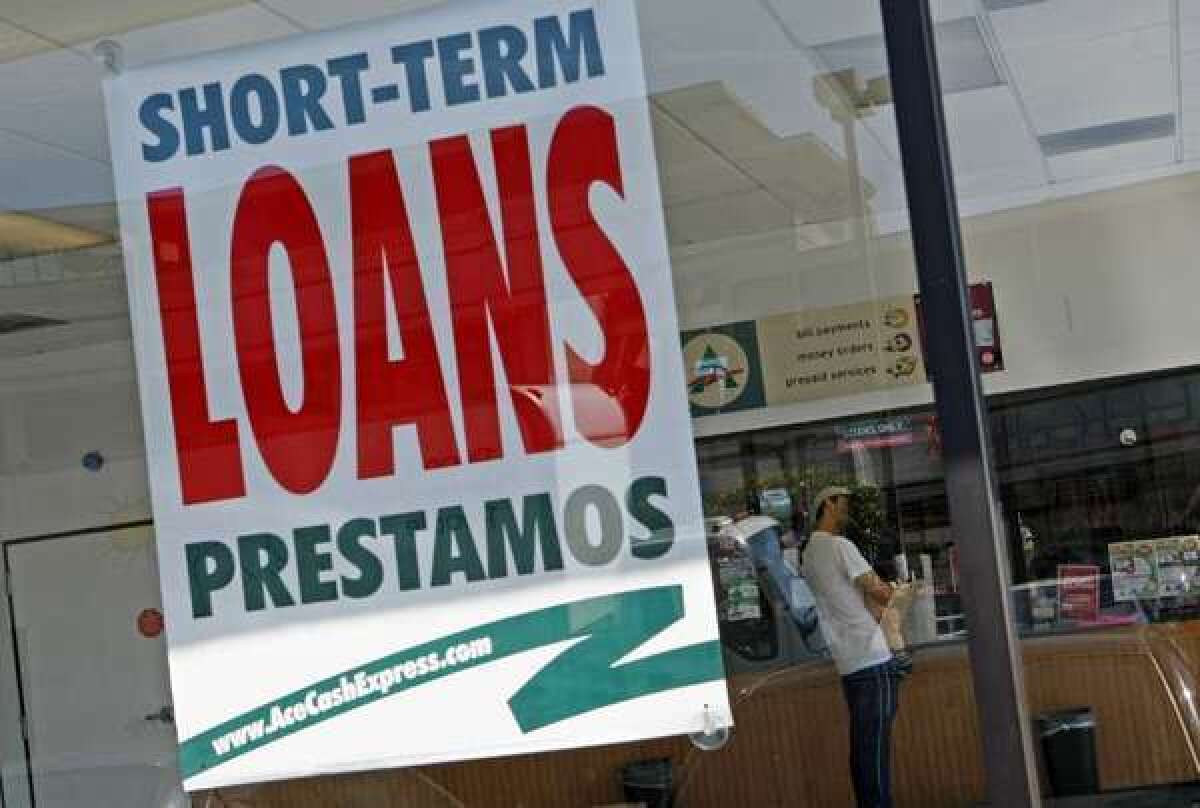Payday lending bill stalls in Sacramento

- Share via
A California bill that would restrict the number of payday loans to any one borrower failed an initial vote in a key banking committee in Sacramento on Wednesday.
Senate Bill 515 received five no votes from members of the Senate Banking and Financial Institutions Committee, three yes votes and one member abstained.
State Sen. Lou Correa (D-Santa Ana), chairman of the committee, was among those who voted no, according to Lara Flynn, a representative of the Center for Responsible Lending, which had backed the legislation. The Senate Banking and Financial Institutions Committee confirmed the vote tally but would not confirm how individual members voted until Thursday.
The bill had been promoted by the Center for Responsible Lending and other advocates as an attempt to break the “debt cycle” that ensnares some of the state’s poorest residents.
But the bill was opposed by the payday lending industry. Representatives for payday lenders had argued that the legislation would severely limit or kill an already highly regulated industry that provides a vital service for strapped Californians.
The legislation, which can be reconsidered at a later date, is intended to bar the high-cost, short-term lenders from making more than six loans a year to any borrower.
The bill also extends the minimum term of a payday loan to 30 days from 15, creates a database of borrowers to track the loans and allows borrowers who can’t repay their loans after six loans to enter a repayment plan.
Advocates for the new restrictions argued that borrowers are often unable to repay the high-cost payday loans on time, so they must continually take out fresh loans, racking up more fees. Adding new restrictions on the number of loans made to borrowers each year would ensure that these consumers are not exploited, they said.
Representatives for payday lenders said the legislation could put them out of business and could serve to push people to get payday loans online — where many companies that offer the loans are not licensed in California, making it difficult for local authorities to crack down on legal violations.
ALSO:
New BofA card offers cash for paying off debt
JPMorgan Chase clamps down on payday lenders
More to Read
Inside the business of entertainment
The Wide Shot brings you news, analysis and insights on everything from streaming wars to production — and what it all means for the future.
You may occasionally receive promotional content from the Los Angeles Times.










